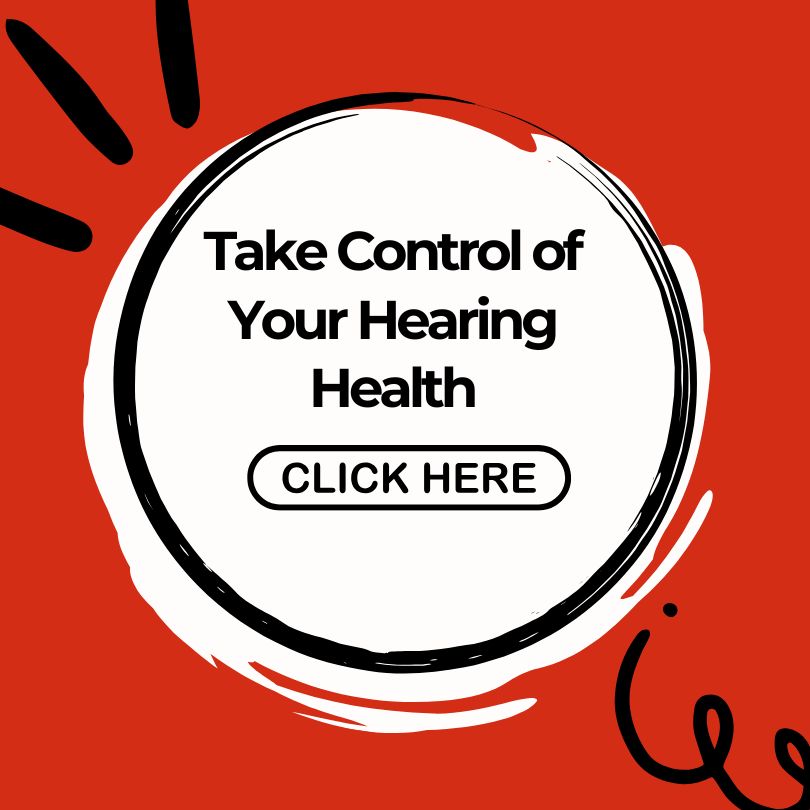For many, summer brings the return of the familiar nuisance of allergy season: sneezing, congestion, and itchy eyes. However, these symptoms can sometimes also bring unexpected complications in the form of ear-related issues.
If you’ve noticed changes in your hearing or experienced sensations of ear pressure and fullness during allergy season, you’re not alone. The connection between allergies and ear health is more common than you might think!
How Allergies Impact Your Ears
Allergies trigger an immune system response to substances perceived as threats. The response includes the release of histamines, and this causes inflammation and increased mucus production that can extend into your Eustachian tubes—which are vital for regulating ear pressure and facilitating hearing.
Inflamed Eustachian tubes can result in a number of symptoms that may disrupt your daily life.
1. Muffled Hearing:
Allergies can cause the Eustachian tubes to swell and become partially blocked, which can make understanding conversations and perceiving environmental noises difficult, leading to feelings of isolation or frustration.
2. Fluid Buildup:
Inflammation from allergies can lead to fluid accumulation in the middle ear. This fluid may not drain properly, causing a sensation of fullness and potentially impacting balance and clarity of hearing.
3. Pressure Changes:
Swollen Eustachian tubes can prevent normal air pressure regulation within your ear. This can lead to discomfort or pain, particularly when you’re experiencing altitude changes, like when flying or riding in elevators.
What’s Normal and When to Be Concerned
While experiencing ear-related symptoms during allergy season can be distressing, it’s crucial to understand what’s normal and what calls for professional attention.
Typical allergy-induced ear symptoms include temporary hearing changes and mild discomfort, which are often resolved with successful allergy management. However, persistent symptoms might show an ear infection or significant hearing loss.
You should seek consultation if you experience severe or lasting symptoms, such as intense ear pain, prolonged hearing difficulties, dizziness, or balance issues.
Allergy Season in Texas: A Year-Round Challenge
We Texans often contend with a prolonged allergy season that varies across regions, with differing peaks in allergen levels.
Common allergens across Texas include cedar, oak, elm, ash, and pecan trees; Bermuda grass; ragweed; and mold spores.
Such variety ensures that allergy symptoms can persist throughout the year, potentially causing ongoing ear-related complications.
If you’re struggling with the sniffles and muffled hearing this summer—or any time of year—you’re not the only one with allergy troubles! You can rest assured that our team is here to help with expert hearing care and tissues at the ready.
Why You Should See a Hearing Professional
If allergy symptoms are significantly affecting your quality of life, particularly your hearing, a visit to a hearing care professional could be beneficial.
Early intervention can prevent further damage and improve outcomes, ensuring you maintain your quality of life.
Strategies for Managing Ear Symptoms During Allergy Season
1. Track Your Symptoms:
Keep a detailed record of when and where symptoms occur to help pinpoint specific triggers, aiding physician diagnosis and treatment planning.
2. Consistent Allergy Treatment:
Stick to a prescribed allergy treatment plan to help reduce overall symptoms and minimize ear complications.
3. Regular Hearing Assessments:
Especially during peak allergy times, seek out regular hearing checkups in order to identify changes early on and optimize your hearing capability.
4. Environmental Controls:
Minimize exposure to known allergens by using air purifiers in your home, keeping windows closed on high pollen days, and wearing masks outdoors during peak pollen times.
Schedule an appointment to experience firsthand the potential of smarter hearing solutions and embark on your journey toward enhanced auditory health.
Contact us today to get started, or request a callback for more information, and we’ll get in touch as soon as we can to help.


